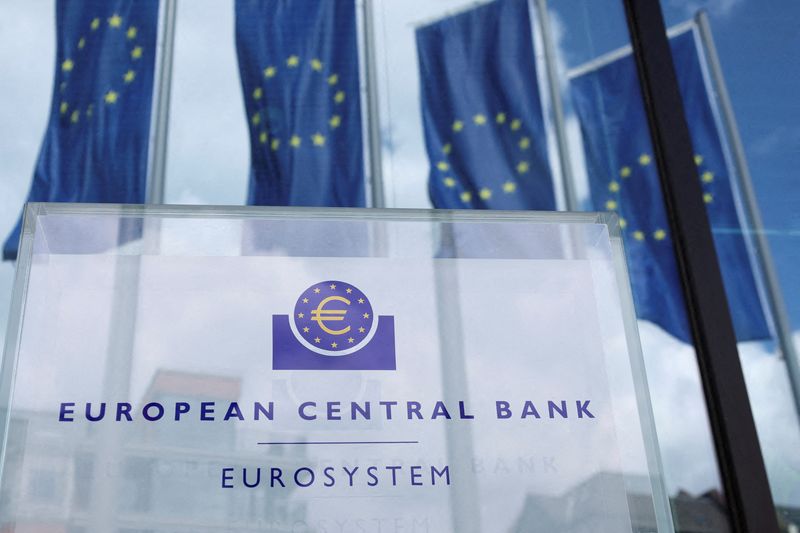FRANKFURT (Reuters) – European Central Bank policymakers laid out diverging views on future interest rate hikes on Monday, suggesting that moves beyond next week’s half a percentage point increase remain contentious.
The ECB promised in December a steady pace of 50 basis point increases spanning multiple meetings to combat sky high inflation but markets have been doubting its resolve and pricing for March has been oscillating between 25 and 50 basis point increases as policymakers speak.
The Dutch and Slovak central bank governors gave explicit support for a bigger move in March but their Italian and Greek colleagues made the case for a more cautious stance in a flurry of comments just days before the bank’s quiet period starts ahead of the Feb. 2 meeting.
ECB President Christine Lagarde aimed to put to bed this debate last week when she told investors to “revise their positions” as her guidance was unchanged and market pricing moved up, even if some doubts still lingered.
Slovak central bank chief Peter Kazimir, an outspoken hawk, said back-to-back 50 basis points moves are still needed and policy tightening could be done by the summer.
“An inflation drop in two consecutive months is good news. But it is not a reason to slow the tempo of raising interest rates,” Kazimir said in a statement on Monday. “I am convinced that we need to deliver two more hikes by 50 basis points.”
Klaas Knot, his Dutch counterpart, made a similarly explicit statement over the weekend, promising more hikes beyond March.
“Expect us to raise rates by 0.5% in February and March and expect us to not be done by then and that more steps will follow in May and June,” Knot said.
Inflation, now around 9%, is seen jumping again in January before a gradual drop in the coming years that could still see price growth above the ECB’s target until 2025.
Economists polled by Reuters expect the ECB to deliver 50 basis point interest rate rises at each of its next two meetings.
But policy doves, largely quiet in recent months as inflation soared to double digits last autumn, also pushed back on Monday.
Greek central bank Governor Yannis Stournaras said that uncertainty over the inflation outlook is simply too large given market volatility, the war in Ukraine and a possible recession, so the ECB would benefit from a more cautious approach.
“In my opinion, the adjustment of interest rates needs to be more gradual, taking into account the slowdown in growth of the euro area economy,” Stournaras told Greek newspaper Kathimerini.
Italy’s Ignazio Visco agreed that more rate hikes are needed but also said it must be done gradually, keeping in mind that longer-term inflation expectations remain anchored near the ECB’s 2% target and there is no sign of a wage-price spiral.
“I am not convinced that it is better today to risk tightening too much rather than too little,” Visco said in a speech.


